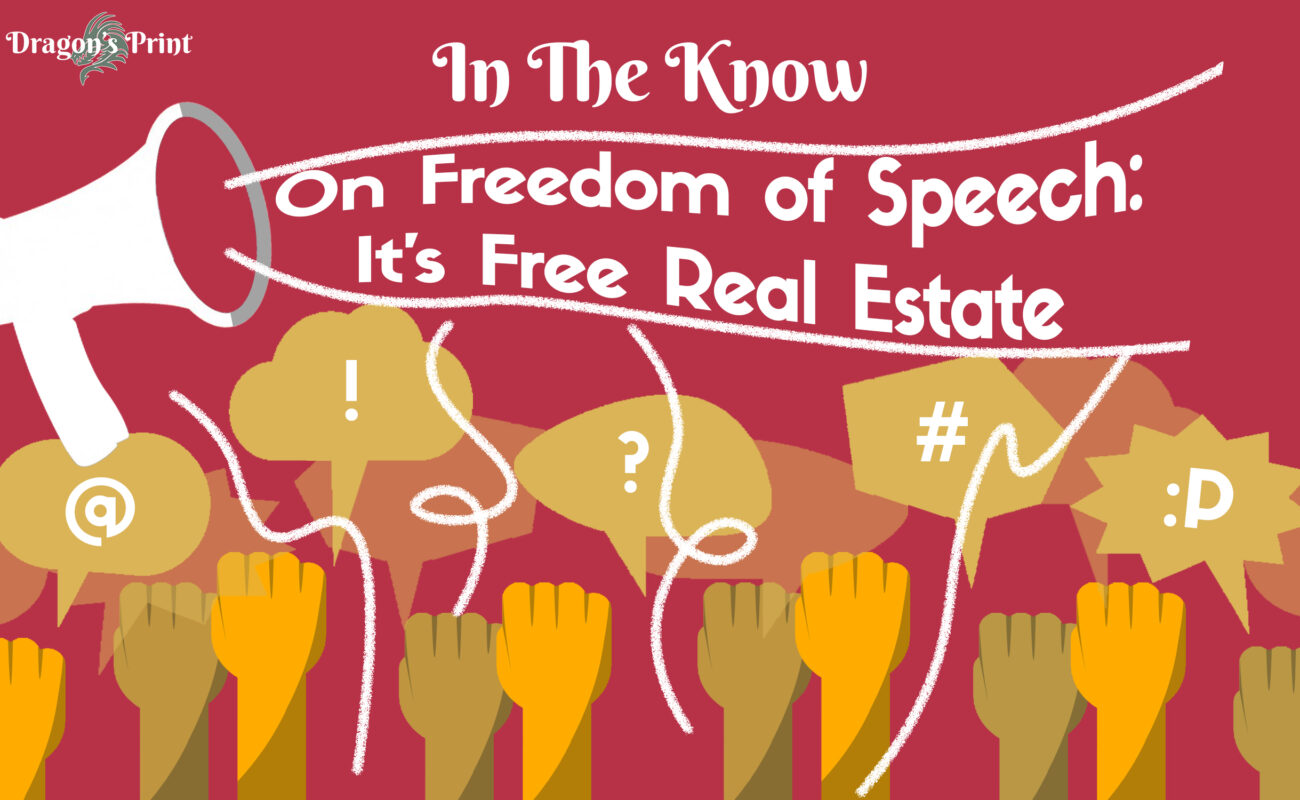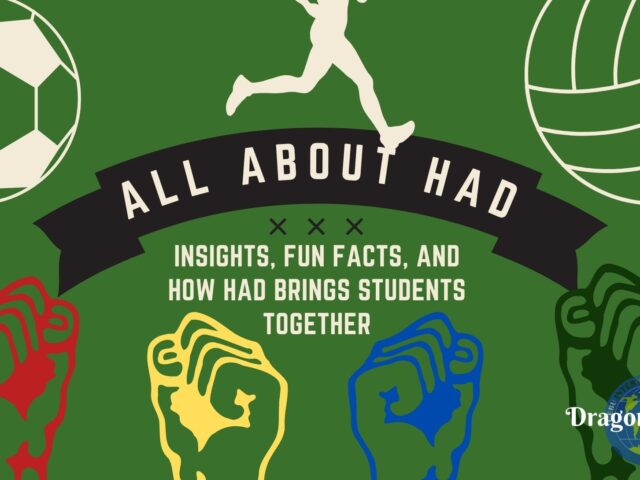It’s 2020, and we have the world at our fingertips.
With the rise of digital technology, the majority of today’s sources of information can be found online. News websites like The Guardian and Aljazeera provide real-time updates on current events. Social media applications such as Instagram and Facebook also provide their own form of “reporting”, with a variety of posts commenting on prevalent issues of a global or local scale. In schools, we also have the campus press who publish not only entertaining articles but also insightful criticisms of today’s problems.
When it comes to the expression of our ideas through the media, we are free to raise concern on any topic or issue, no matter how trivial or controversial. We all have the right to share our own comments about the topics that we come across online. After all, these topics, as the famous meme goes, are “free real estate”. We have the privilege of accessing all the information available to us on the Internet and making do with it as we please. However, freedom of speech does not simply signify the ability to say whatever we want, whenever we want—just ask campus journalists, or students with the privilege of writing for a publication.
Having freedom of speech means that we ought to use it to liberate the truth in as many ways possible, whether it be evaluating a biased source or calling out unfair narratives.
As voices of the school community, our freedom comes with a certain responsibility. We carry with us the knowledge that our words will be taken to represent those of the school and that our write-ups can even effect institutional change. Our job is to determine the direction and manifestation of this change by choosing relevant topics, featuring representative members of the community, and writing with clarity. This is not an easy task—there are times when we unintentionally publish paragraphs with questionable connotations or we wished we had written about more trivial subjects. But what makes campus journalism so fulfilling—and so freeing—is that it can get people to change their perceptions about others. It can get previously unheard grievances to gain traction. It can get emotions to shift from hopelessness and uncertainty to gratitude and joy. Our freedom may come with conditions, but that is because it reaps invaluable awards if it is properly utilized, and grave consequences if misused.
Nevertheless, before we are writers, we are students, and though the implications of our freedom of speech are less critical, it is equally crucial that we know what they are. A student should be concerned with reporting accurate information in their schoolwork. In order to do so, fact-checking data is a must. Other skills such as paraphrasing, summarizing, and citing are incredibly useful as well and must be employed for every task. As much as we wish we could write assignments without having to worry about proper citation, we simply aren’t “free” to do so. The adage “Give credit where credit is due” rings true, and it is important for us students to remember that when we are deriving ideas from works or places that aren’t our own.
Moreover, it is crucial that we remain open-minded and reflective as we navigate the plethora of data at our disposal. With all the news articles and social media posts we are exposed to every day, it is hard not to develop a one-sided or sensationalized perception of current issues. Take for example the Corona Virus outbreak. For as much pandemonium as the news of the virus caused, there still remains the fact that its death rate is low, at around 2%, and that preventative measures can be taken to avoid contracting the virus, as reported by the school’s info brief on the matter. Having freedom of speech means that we ought to use it to liberate the truth in as many ways possible, whether it be evaluating a biased source or calling out unfair narratives.
The question now is: how do we meet the responsibilities that come with handling and producing information?
Well, as previously mentioned, the world is at our fingertips. We are exposed to all these biases, misinformation, and fake news, but we are also capable of searching for the truth and sharing it to others. Nothing should stop us from discerning the information, and “freedom of speech” should not be an excuse not to do so, either.
After all, the information we are presented with is free real estate. It is simply up to us how we decide to build our house.

Written by Venise T. (Grade 11) and Axelle M. (Grade 12); Feature image by Katrina R. (Grade 12)
![]()




Carrie Kohlmeier
It’s not only important that you are actively using your freedom of speech but that you are doing so so very responsibly and respectfully. Well done!